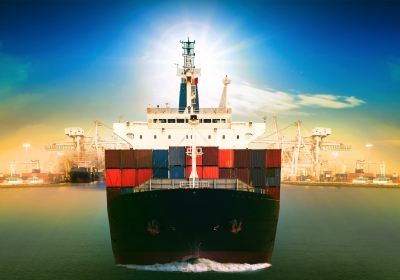 Six foreign carriers operating in the Philippines are now taking advantage of the provisions of the Foreign Ships Co-Loading Act, according to Association of International Shipping Lines (AISL) general manager Atty Maximino Cruz.
Six foreign carriers operating in the Philippines are now taking advantage of the provisions of the Foreign Ships Co-Loading Act, according to Association of International Shipping Lines (AISL) general manager Atty Maximino Cruz.
In a text message to PortCalls, Cruz said the six—NYK Line, MCC Transport, “K” Line, Yang Ming, CMA, and ACL/PIL—are already co-loading foreign cargoes for domestic transshipment after this activity was allowed under Republic Act (R.A.) No. 10668.
R.A. No. 10668 (An Act Allowing Foreign Vessels to Transport and Co-Load Foreign Cargoes for Domestic Transshipment and for Other Purposes) was signed by then President Benigno Aquino III on July 21, 2015. The implementing rules and regulations (IRR) of the law were published last May and the Bureau of Customs (BOC) memorandum order operationalizing the IRR was issued last June.
READ: PH stakeholders hail signing of Co-loading Act
READ: BOC lays out guidelines for Foreign Ships Co-Loading Act
Cruz said all six carriers are co-loading both loaded and empty containers at, for now, the Manila International Container Terminal and the Manila South Harbor.
The AISL general manager noted that “participation of more liners to the co-loading arrangement would heavily depend upon the demand of local shippers. The greater the volume of shipments for co-loading, the more attractive it becomes to foreign container lines.”
Earlier, Cruz noted that the routes likely to be most utilized under the law are the major ports, such as Cebu, Subic, Batangas, Davao, General Santos, and Cagayan de Oro.
Cruz reiterated that foreign liners are quite happy with the signing of R.A. No. 10668 because it finally “puts to rest the nagging issue of whether foreign empty containers, discharged by a foreign vessel in a Philippine port of entry, can be carried by another foreign vessel from one Philippine port to another Philippine port for repositioning abroad or export use.”
“The law now allows (co-loading) without violating the cabotage doctrine,” Cruz pointed out.
The new law ensures the country’s cabotage policy is intact. Section 8 of R.A. No. 10668 states: “Foreign ships shall submit their cargo manifests to the Port Authorities to ensure that no domestic cargoes are carried by the foreign ship. No foreign vessel shall be allowed to carry any domestic cargo or domestic container van, whether loaded or empty, even if such domestic container van may container foreign cargo.”
Aside from settling the issue on empty containers, Cruz earlier said that “whatever benefits the foreign lines can derive from the new law are merely collateral,” and that the law “is more for the benefit of local shippers/exporters.”
He added that co-loading among foreign liners in transporting import and export cargo from one port to another port in Philippines will reduce shipping costs and enhance the competitiveness of Philippine exports in the global market.
He said foreign vessels will eliminate costs usually incurred when domestic transshipment of import and export cargoes is performed by domestic carriers. These include hauling cost in transporting the goods from an international terminal to a domestic terminal, cargo handling charges paid by importer-manufacturers to the discharge and loading ports, and underguarding fees collected by BOC.
Before the law was enacted, cargoes bound for other local ports that are carried by a foreign vessel calling Manila needed to be transhipped via a domestic vessel to the port of destination.
Other than higher costs incurred under the previous setup, Cruz added that the security and integrity of the cargoes were put at greater risk whenever cargoes were transferred over land from the port of discharge to the loading port, “not to mention the resulting inefficiency because of double handling.”
Ma. Flordeliza Leong, Philippine Exporters Confederation, Inc. assistant vice president for advocacy and communications, in a text message to PortCalls, said they have received no reports yet on whether any member-exporters are availing themselves of the new law’s provisions. – Roumina Pablo
Image courtesy of khunaspix at FreeDigitalPhotos.net





